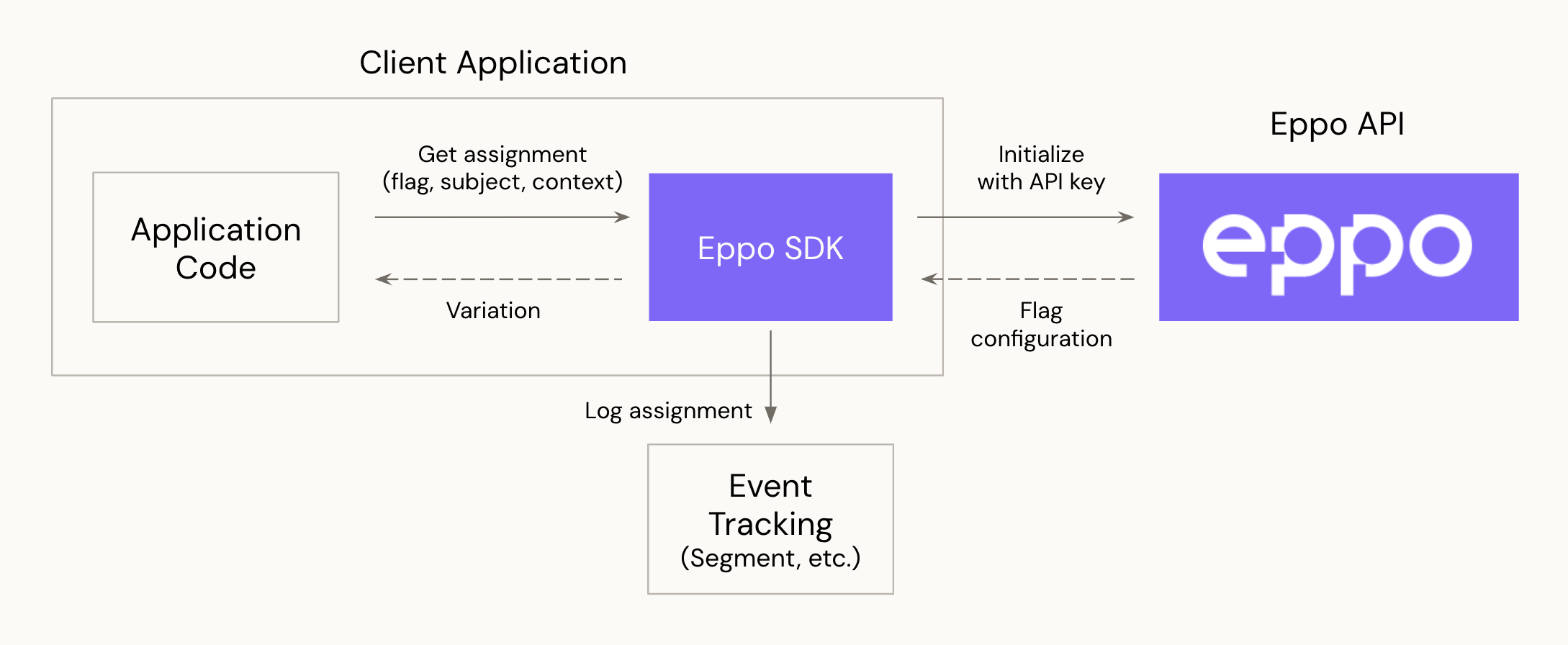Client SDKs
Eppo supports a variety of client-side SDKs for different programming languages. To get started with a specific SDK, select the language below:
About
Eppo's client SDK integrates with client-side applications that run on a user device. The below diagram shows how the SDK interacts with your application code, event tracking system, and Eppo's servers:
-
Initialization: The SDK retrieves flag/experiment configurations from Eppo using an API key provided during initialization. The configuration data includes flag/experiment variations and traffic allocation. The SDK stores these configurations locally on the device for quick lookup during assignment.
-
Assignment: Once the SDK is initialized, your application code invokes the SDK to assign a variation to a subject. This step does not involve any network requests.
-
Logging (Experiments only): The SDK logs assignment events to whichever event tracking system you use (for example Segment) using a callback function you provide on SDK initialization. The assignment data includes information about the assigned variation and subject.

Globally Distributed Experiment Configurations
The SDK retrieves experiment data from the globally distributed Fastly CDN. Each CDN location maintains a cache of experiment data. If there is a change to an experiment, such as an increase in traffic allocation, cached experiment configurations are updated within 10 seconds.
The SDK uses a background process to fetch and store the experiment data. The p75 latency of these requests is 50ms. This latency does not affect variation assignments, which use locally stored experiment data.